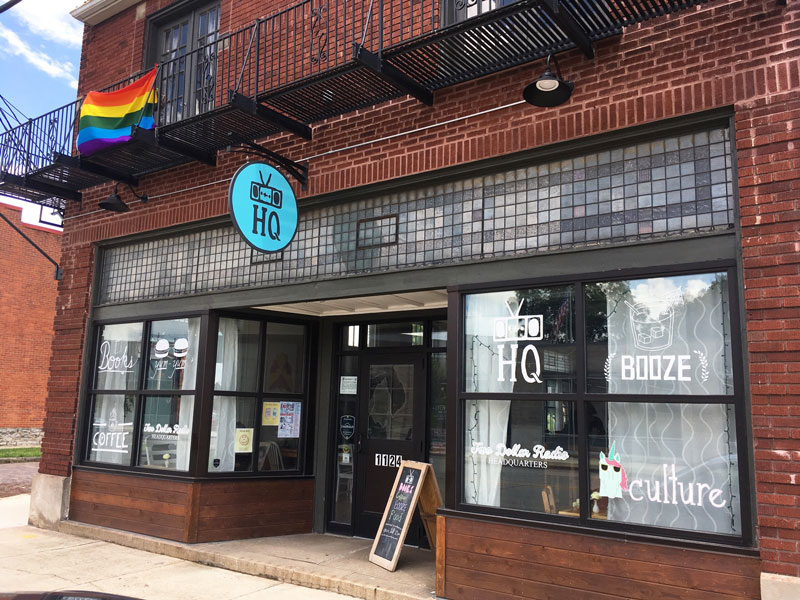"If only for widening the scope of the debate over public schools, Eve Ewing’s new book is a welcome entry to the conversation. Rejecting the impulse to see education as disconnected from American life and politics, Ghosts in the Schoolyard links the struggles of Chicago public schooling with the city’s notoriously racist housing practices. Ewing peels back the seemingly anodyne messaging of reform ('school choice') and its ostensibly objective standards ('test scores') to reveal the insidious assumptions lying beneath. Perhaps most importantly, Ewing gives direct voice to those served by those schools often dismissed as failing. What she finds is that these schools are often among the last working institutions in neighborhoods which have been systematically stripped of everything else. Mixing history, sociology, and even memoir, Ghosts in the Schoolyard is an important addition to any conversation about the future of public schools and those they were designed to serve."
—Ta-Nehisi Coates
"Two questions permeate this study: 'If the schools were so terrible, why did people fight for them so adamantly?' and 'What role did race, power, and history play in what was happening in my hometown?' . . . The deeply moving final chapter addresses the Bronzeville community’s sense of mourning in the loss of 'institutions, like our schools that have helped shape our sense of who we are.' Ewing's work, a tribute to students, parents, teachers, and community members, is essential for general readers confronting the issues of 'school choice' and school funding, as well as useful for historians of the African-American experience."
—Publishers Weekly
"Ewing is a Harvard-trained sociologist as well as a poet and an educator (among other things), and this comes through in her lively and accessible writing."
—Booklist, starred review
"A powerful account. . . . Ewing's book thrums with an activist's outrage. . . . Ewing gracefully melds reportage, heartbreak, ire and history in a book that showcases the city’s education and racial tensions as a microcosm for the nation’s amalgamated woes."
—New City
"A chilling must-read investigation of racism in Chicago’s education system. . . .In addition to its poignant content and touching cast of characters, this book is technically superb. Ewing’s crisp prose is succinct and inviting, never lacking in energy. This book never backs down from critiquing the housing, education, and legal systems that contribute to the plight of certain communities in Chicago. . . . Eve L. Ewing's Ghosts in the Schoolyard deftly details a microcosm of a larger picture where some people’s freedoms are much more complicated than others."
—Foreword Reviews
"Bracing. . . . Most important, this book effectively connects school closings in largely African American neighborhoods to the devaluation of black lives in general. Ewing's graceful prose enlivens what might otherwise be a depressing topic in this timely, powerful read. Recommended."
—Library Journal
"Ewing masterfully illuminates the alternate realities, histories, calculations, and languages that were at play in closing dozens of predominately Black schools in Chicago. Those schools now reside in the ghostly world, and Ewing acts as a keen shaman, reminding us of what has been lost and instructing us on how to value Black children's education going forward. A powerful book on so many levels."
—Mary Pattillo, author of Black on the Block
"In Ghosts in the Schoolyard, Eve Ewing dramatically uncovers the deleterious effects of school closings in the Chicago inner-city community of Bronzeville. With noteworthy prose, this powerful research study illuminates the role of implicit racism, segregation, school policy, and housing policy in school closings and their subsequent impact on students, parents and teachers. Ewing's revelatory analysis is a must-read for anyone concerned about the future of urban communities, especially the public schools populated with students of color."
—William Julius Wilson
"Ghosts in the Schoolyard is an engaging, critical, and accessible analysis of the Chicago Public School closings. With brilliant analysis and beautiful prose, Eve Ewing lends a window into the local and national political struggles, historical processes of marginalization and isolation, and contemporary market logics that have produced the current educational moment. Equally important, Ewing never loses track of the various ways that students, teachers, and parents have resisted the processes and discourses of school closing. This is a rare and urgent text that should be read by scholars, parents, teachers, and students alike."
—Marc Lamont Hill, author of Nobody: Casualties of America’s War on the Vulnerable, from Ferguson to Flint and Beyond
"In Ghosts in the Schoolyard, we listen to the anguished and angry voices of parents, teachers, students, and community members who expose the currents of deceit, shaming, and racism that are embedded in the bureaucratic language and metrics that seek to rationalize the school closings on Chicago’s South Side. In this heartbreaking and revelatory narrative, Eve Ewing is the disciplined observer, the generous witness, the probing analyst, and the soulful poet who hears the grieving and the grace in their 'institutional mourning.'"
—Sara Lawrence-Lightfoot, Emily Hargroves Fisher Professor of Education, Harvard University




